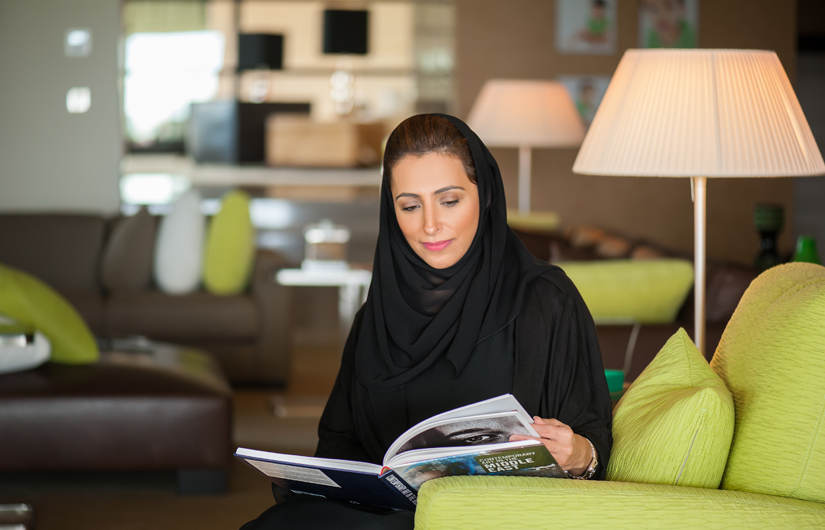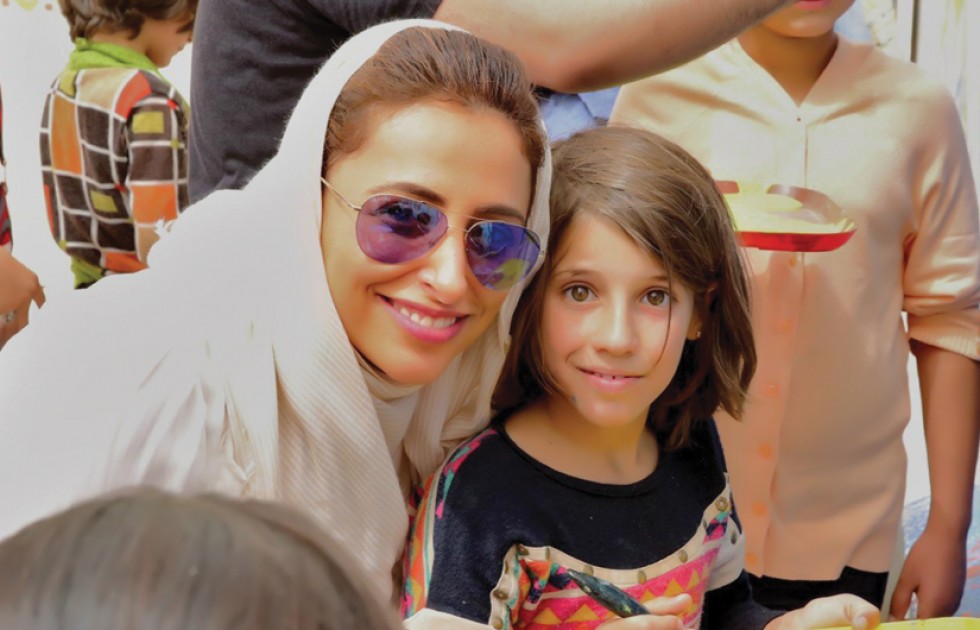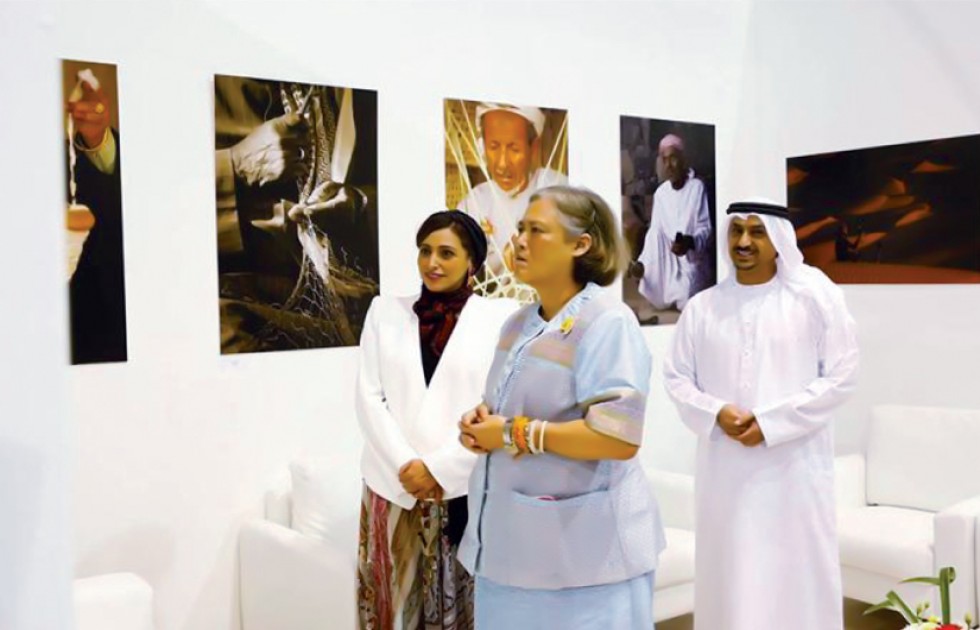People's welfare is a topic that has always been close to my heart, and studying medical anthropology gave me a wonderful opportunity to gain some real insight into the health and health care influence and impact on culture a” nd society
An author and publisher, Sheikha Bodour Al Qasimi is very active inreadership, cultural and mother hood issues in the UAE, especially in her home Emirate of Sharjah. Educated in the UK, she learned the publishing trade in the US and now has three imprints of books for children and young adults, as well as her own series of books for in fants. She answered questions candidly and exclusively for Elite+ on matters of publishing and recent changes in the Emirates.
Where did you pursue your university education?
I completed both my graduate and post graduate studies in the UK. I first attended Cambridge, where I did a BA, after which I pursued a master’s in medical anthropology from University College, London. People’s welfare is a topic that has always been close to my heart, and studying medical anthropology gave me a wonderful opportunity to gain some real insight intothe health and health care influence and impact on culture and society.I have also completed publishing courses from both Yale and Columbia inNew York, which have been invaluable in supporting me through my publishing journey.
Why did you step into thepublishing industry?
I believe that reading is an investmentin our future. It is the start of all progress and the foundation upon which modern society is built. I am lucky to have been raised in a family that puts a high premium on readingand education and it is that foundation,the love for books instilled in me by my parents, that is at the root of my publishing career.
It started quite simply, with a wish to share my love for books and reading with my children. As a young mother looking for good quality Arabic books– that were true to our culture an denvironment – to read to my children, only to find there was almost nothing available. I knew something had to bedone to change this, not only for the sake of my children but for all the children of the region. I knew I could not wait and hope for someone elseto fix this problem, which is why I decided to create Kalimat Publishingin 2007. It was the first publishing house in the GCC region dedicated to creating quality Arabic children’s books. It wasn’t an easy undertaking, but I am very thankful to say Kalimathas become a great success and has expanded to now include three imprints: Kalimat Publishing, which produces high quality original Arabic children’s books; Horouf EducationalPublishing, a fun, technologicallyenabled educational programme;and most recently Riyawat, which isdedicated to publishing novels and short stories
Have you also written your ownbooks?
I have always believed that creatinga love for reading starts long before a child actually learns to read. The foundation of reading culture is built through parents reading to their children, which is why I decided to write a series of colourful and interactivepuppet books designed for parents to share with their little ones. The books introduce children to a range of animals, teaching them about their habitats, the sounds they make, the food they eat, and more. These are the kind of books I was looking for when I was getting ready to welcome my first child into the world, and I amproud to have been able to make myown small contribution to the Arabic children’s library.
Apart from publishing, are thereother fields of business or personalendeavour that you are passionateabout?
I am passionate about development and I work on many projects in theUAE that foster development in the economic, cultural and social sectors.Through the “Sharjah Baby Friendly Emirate Campaign”, we aim to make all business and public spaces in Sharjah baby and mother friendly by the end of the year. Another projectis the “Read to Syria’s Children”initiative, which aims to give hope to Syrian refugee children by giving them access to books and using the power of reading to help them build abetter future for them selves.
In your view, what sets the UAEapart, and what strengths make itunique among Arab countries?
What has set the UAE apart from the very start is its commitment toinvesting in its own people. It is anethos that was first instilled by the“Father of the Nation” and form erpresident, the late Sheikh Zayed Al Nahyan, and which is being keptalive through the wise leader ship ofthe country. Thanks to this for ward thinking approach, the people of the Emirates have grown with their country and continue to excel acrosse very discipline.
Another important element that continues to differentiate the UAEis its ability to balance the pursuit of progress, development and modernization with a deep respect for, and commitment to, preservingits heritage and identity. The Emirates has perfected the art of being agracious host, welcoming people from all over the globe to become a part ofits growing success, yet never losessight of its own culture and values.
Could you recommend for ourreaders some interesting touristattractions in the UAE?
The UAE has a lot to offer visitors.Sharjah, for instance, is a wonderful destination for cultural exploration,with many world-class museums to peruse. It also has the greatest rangein terms of biodiversity in the UAE,making it great for ecotourism. If youare visiting Abu Dhabi, I wouldrecommend a desert safari to Liwa andof course the Sheikh Zayed GrandMosque – the largest mosque in theUAE and one of the largest in the world. And in Dubai there are the Spice Souq and Gold Souq markets and “At the Top” – the viewing plat form of the world’s tallest building,the BurjKhalifa.






















































































































































































































































































































































































































































































































































































































































































































































































































